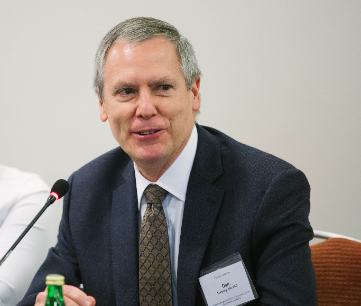Greenwall
Faculty Scholar Program Committee Member Dr. Daniel
Sulmasy, Faculty Scholar Dr. Brent
Kious, Faculty Scholar Alum Dr. Scott Kim,
and Prof. Margaret Battin debated a difficult and controversial bioethics topic,
psychiatric aid-in-dying (or as some scholars prefer to call it,
physician-assisted suicide), during a one-hour panel at the 2020 American Society for Bioethics and Humanities Annual Conference. These scholars sit at the forefront of discussions about psychiatric
aid-in-dying, that is, the possibility that medical professionals would assist
patients experiencing intractable mental illness in dying when patients request
it.
Speaking first, Dr. Kious presented an argument that psychiatric aid-in-dying is equivalent in every relevant way to aid-in-dying for patients with terminal illnesses. Aid-in-dying for patients with terminal illnesses, he said, is often justified on the grounds that these patients face unavoidable and intense suffering, and they have autonomously chosen to die. Dr. Kious argued that patients with serious mental illness are often competent to request aid-in-dying, and can experience as much suffering as patients with terminal illnesses. Because of these parallels, Dr. Kious argued, it is the right thing to offer some psychiatric patients aid-in-dying to ameliorate their unfixable suffering.
Dr. Sulmasy responded next, agreeing that the logic that justifies physician-assisted suicide for terminally ill patients on the basis of respect for autonomy and relief of suffering also justifies assisting at least some psychiatrically ill patients in bringing about their own deaths. But, he said, the thought that physicians would be helping psychiatrically ill patients to kill themselves ought to shock us into realizing that the justification for assistance in any form of assisted suicide is faulty. Many other unacceptable practices can also be justified along these lines, in part because there is no clear way of determining how much suffering is necessary. Dr. Sulmasy argued that this line of thought should motivate reconsidering whether physician-assisted suicide is ever justifiable.
Prof. Battin cast psychiatric aid-in-dying as the best kind of care for some patients, drawing a through-line between hospice, terminal sedation, and other generally acceptable care practices and psychiatric aid-in-dying. She argued that in some cases it is impossible to end a patient’s suffering and comply with their wishes without helping a patient to end their own life.
Dr. Kim responded with evidence that real-world evaluations for whether patients qualify for psychiatric aid-in-dying cannot meet the high standards that would be necessary for this practice to be morally acceptable. He provided several examples of cases in the Netherlands, where psychiatric aid-in-dying is legal and where a robust healthcare system provides an “ideal” backdrop for the practice. He argued that that in many cases, patients who received psychiatric aid-in-dying may not have had the capacity to consent to it, and that many patients who requested psychiatric aid-in-dying did not have intractable psychiatric suffering.
The debate ended with a lively Q and A focused on what psychiatric aid-in-dying might look like in practice.
This presentation was a careful and thorough examination of many aspects of the debate surrounding psychiatric aid-in-dying and offered a timely, high-quality discussion of a complex bioethical issue. “We were grateful to have this forum to hold an open, honest, and reasoned debate around a very difficult and timely subject,” said Dr. Sulmasy, André Hellegers Professor of Biomedical Ethics at Georgetown University. “Respectful debate, and taking opposing arguments seriously, is important. Communities like the Faculty Scholars Program can foster and support critical and thoughtful discussions about difficult issues on which reasonable people can disagree.”
